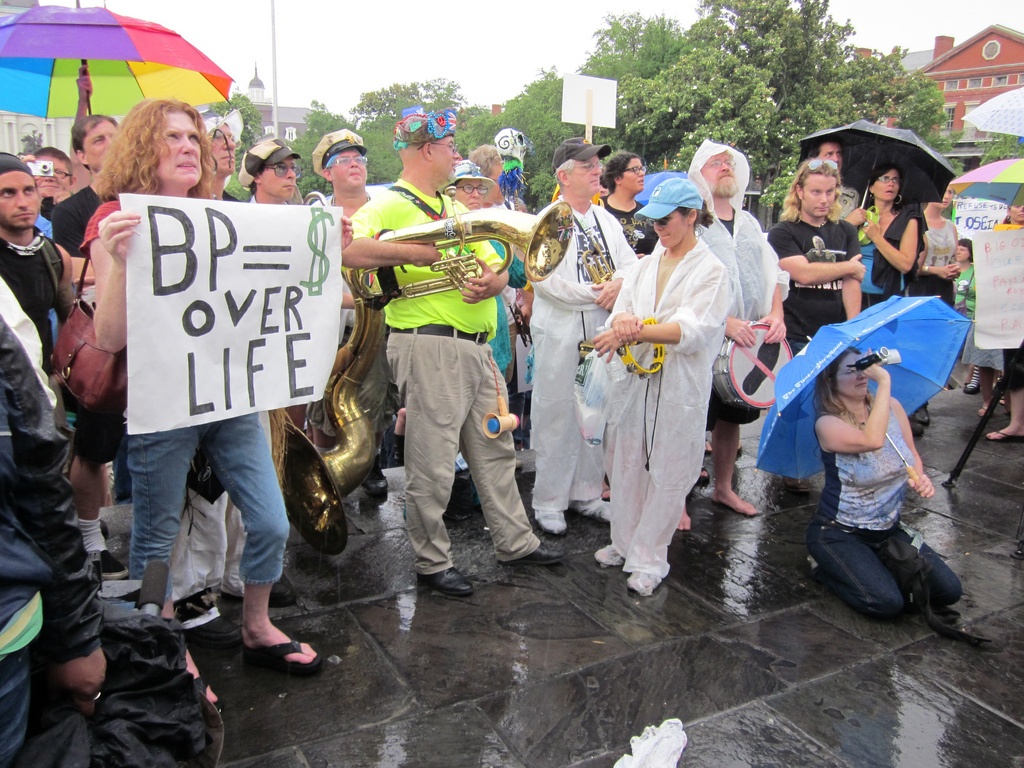INSTITUTE INDEX: BP can push Gulf disaster settlement costs onto taxpayers

BP will be able to write off as a business expense most of the $20 billion settlement it will pay for its 2010 Deepwater Horizon oil spill, resulting in a potential tax windfall to the company of over $5 billion. (Photo of 2010 BP oil spill protest by Infrogmation of New Orleans via Flickr.)
Date on which a federal judge gave final approval to BP's settlement with the federal government and five Gulf Coast states over its 2010 Deepwater Horizon oil spill disaster in the Gulf of Mexico: 4/4/2016
Estimated value of the settlement: over $20 billion
Rank of that among the largest environmental settlements in U.S. history: 1
Amount BP has already paid in criminal fines and penalties for manslaughter in the deaths of 11 rig workers in the disaster: $4 billion
Portion of the $20 billion settlement that BP will pay under the Clean Water Act, which the settlement specifies is not tax-deductible: $5.5 billion
Portion of the settlement that BP will be able to write off on its taxes as an ordinary business expense: $15.3 billion
Estimated tax windfall that could result in for BP: $5.35 billion
Date on which members of Congress, led by Rep. Raul Grijalva (D-Arizona), sent a letter to U.S. Attorney General Loretta Lynch asking her department to include language in the final settlement "that clearly specifies no amount of BP's settlement costs may be treated as a tax deduction": 11/18/2015
Number of Congresspersons who signed the letter: 53
Date on which a coalition of 17 environmental groups also sent a letter to Lynch noting that the "Department of Justice has wide latitude to pursue a settlement that specifically forbids the deduction of these payments": 12/4/2015
Amount BP previously received in tax breaks by writing off earlier settlement costs related to the Gulf spill: $10 billion
Date on which U.S. Sen. Patrick Leahy (D-Vermont) introduced a bill that would bar companies from writing off punitive damages as ordinary business expenses: 1/13/2015
Estimated amount by which tax revenues would increase over 10 years if this loophole is closed, according to the Joint Committee on Taxation: $355 million
Actions taken on Leahy's bill since it was referred to the Finance Committee, chaired by Sen. Orrin Hatch (R-Utah): 0
(Click on figure to go to source.)
Tags
Sue Sturgis
Sue is the former editorial director of Facing South and the Institute for Southern Studies.
